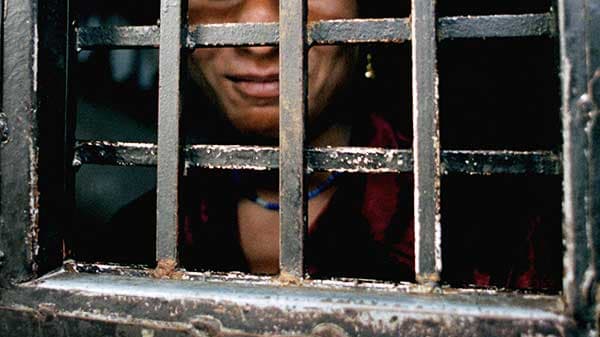After the tragic end of East Aleppo and the displacement of hundreds of thousands of survivors from horrific bombings, that included hospitals and typical civilian’s landmarks such as schools, who would pay attention to the violence inflicted on women in Syria? With the insurrection and the rebellion against the authoritative regime of Bashar al-Assad, women have served as weapons of war as has been increasingly the case in the many places torn apart by conflicts.
The sexual abuses committed against women from Da’esh/Isis are notorious and exposed under the antiterrorism narrative, but the strategically organized sexual violence against women set up by the regime of Bashar al Assad against the opposition has not been narrated as such. Some few have identified “rape” as Bashar’s secret weapon or weapon of mass destruction.
Once again, women’s bodies are the stakes of political violence while women see their participation as full citizens with rights to political and social debate systematically impugned or rendered impossible. Additionally, religious and social patriarchal discrimination against women have put women in a position of intensified vulnerability.
During the conflict that partitioned Yugoslavia Bosnia in the 1990s, sexualized violence against Muslim women became a strategy of war. In the middle of the killing, “rape camps” were established in which women were raped, had their breasts cut if they resisted or slaughtered. Women’s bodies instrumentalized by elite strategists were tortured by Serbian militias, soldiers; the goal was to make them forget that those bodies were/are women beings. Margot Wallström, the UN Special Representative on Sexual Violence in Conflict, estimated that about 60 000 women suffered sexualized violence in Bosnia and Croatia.
Today, one wonders yet again about the international community’s position.
UN resolution 1820 of 2008, entitled Women and Peace and Security, was described as a “step in the right direction.” The expectations with this resolution were that sexual violence during conflicts would be recognized as a weapon of war violating the rules of war and therefore could be punished in a tribunal. This resolution raised the question of the impunity of the perpetrators of these atrocities that typically left deep scars and pushed women to commit suicide. As a former UN peace keeping forces major general declared, “It has probably become more dangerous to be a woman than a soldier in armed conflict.”
And still after this resolution, rape and humiliation of women has remained a formal strategy, as we have seen in Syria. Moreover, the impunity with which some atrocities have taken place underlies the failure of the UN Security Council to refer the regime of Bashar to the International Criminal court.
Annick Cojean, who exposed the sexual abuses in Gadhafi’s circles, has investigated the Syrian case. She explains that women have been arrested in great numbers for various reasons for demonstrating peacefully or for being related to an opponent to the regime, simply because the regime has been dictatorial and brutal. Being in custody means that sexual torture. A teenage girl recalls that during her time in a detention center, she along with all the women there would be raped and sexually tortured, burned and more everyday but every day a doctor would give her a pill and check her periods. One day she was late and received another pill that triggered strong pain in the abdomen; she wouldn’t be pregnant despite the numerous rapes. Some witnesses claim that the guards and soldiers receive “performance enhancing” stimulants.
In this patriarchal environment, women who are being humiliated and shown and sometimes filmed naked and raped in their own communities in front of their children and husband are being utilized “to dishonor” their family or community. They often face rejection instead of compassion and support.
They become the culprit instead of the victim. They are crushed under this double threat. Annick Cojean emphasizes that for them to come forward and testify is sometimes an impossible task. She met some of them in Jordan in a refugee camp or in Lebanon; each time the stories were more horrific.
It is hard to know how many women have faced this ordeal. The Syrian representative of the human rights league now estimates that about 100 000 women have been thrown in jail or in detention centers. A great number of them have been sexually tortured. But do we need the number to know that this is a crime?
The ruthless economic and political order followed by many world leaders is an alibi to humiliate and rape women and establish this practice as a normal war strategy along with bombing starving civil populations and targeting and bombing hospitals.
After the ordeal that women went through in Bosnia, many Bosnian leaders and some Imams recognized that women had been victim of war crimes, breaking the patriarchal code of silence that surrounds the mistreatment of women because of religious and “cultural” definitions of honor. That probably helped in getting The International Criminal Tribunal for the Former Yugoslavia working. It was “the first international criminal tribunal to enter convictions for rape as a form of torture and for sexual enslavement as crime against humanity.”
Will it be possible to move to this type of resolution for the women of Syria? When the mechanisms of power associate themselves with hyper-masculinity, making the sword work with sexual domination, life has no value. Only domination to serve vested interests remains.
When is the dignity of women going to be restored in a world of forceful leaders showing their unabashed machismo, while making their little patriarchal arrangements between themselves keeping the defense of corporate power and financial interests in mind? Women must be included in peace resolutions.
(Photo Credit 1: The Daily Beast / Nordic Photos / Alamy)
